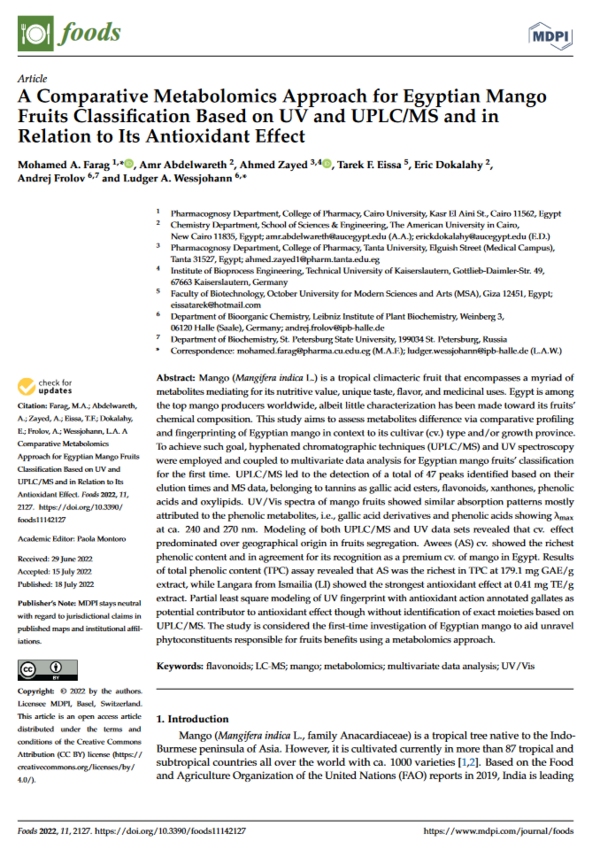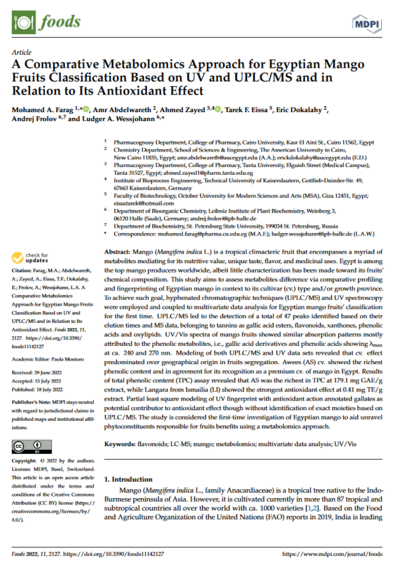Rich in content and variety - Egyptian mangoes compared.
IPB researchers together with partners from Egypt recently examined the substances contained in mangoes. The mango tree (Mangifera indica) originates from Southeast Asia and is cultivated in almost all tropical and subtropical countries. Among these, Egypt is one of the top 10 global mango producers, with an annual production of around 600,000 tons (2019). Many flavorful and health-promoting compounds of mango fruits have been identified in the past and different varieties, mainly from India and China, have been phytochemically characterized.
In the present study, the scientists aimed to systematically compare the metabolite profiles of fruits grown in Egypt for the first time. To this end, they analyzed fruit pulp from eleven different mango cultivars from three growing regions using UPLC/MS- and UV/Vis-based untargeted metabolomics approaches. Analysis of the collected data revealed that the growing regions with their specific soil conditions seemed to mainly influence the content of primary metabolites such as sugars and acids. With regard to secondary metabolite profiles, however, mainly the cultivar rather than the growing region contributed to differences among the sampled fruits. Especially the secondary metabolite class of phenolics was of interest, as these compounds have antioxidant activity and thus provide health benefits. The researchers found that the greatest differences between the mango cultivars consisted in the content of a phenolic acid called gallic acid and its derivatives. A particularly high total amount of phenolic substances was detected in the mango variety "Awee", which supports its classification as Egypt's premium variety.
This study can aid in quality control and standardization especially for high-value mango varieties, the authors argue. In the future, they suggest, the approaches could be extended to include targeted metabolomics and quantitative NMR approaches for even greater detail of quality characteristics.
Original publication:
Farag MA, Abdelwareth A, Zayed A, Eissa TF, Dokalahy E, Frolov A, Wessjohann LA. A Comparative Metabolomics Approach for Egyptian Mango Fruits Classification Based on UV and UPLC/MS and in Relation to Its Antioxidant Effect. Foods. 2022 Jul 18;11(14):2127. doi: 10.3390/foods11142127.



